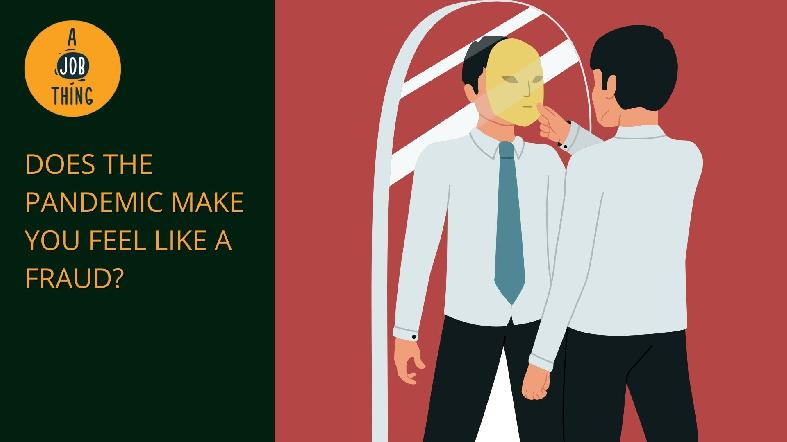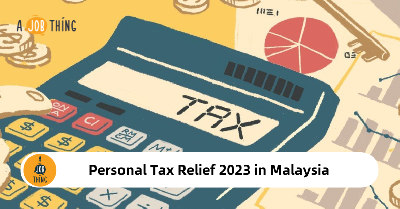
Does COVID-19 Make You Feel Like a Fraud at Work? Here's Why
Create Job Description Using AI
Write appealing job descriptions for any job opening to attract the most qualifield and suitable candidates. FOR FREE.
try now
When companies worldwide deployed remote working during the pandemic, many employees experienced a change in their behaviour after a few months. A few examples are feeling overwhelmed and under-confident, and unable to complete their daily tasks.
What most of them are experiencing is symptoms of imposter syndrome.
Overworked because they don't feel they are doing enough
Experts say the pandemic caused people to overwork to save their jobs or because they don't think they are doing enough. This phenomenon led to an increase in employees second-guessing their skills and potential.
These persistent feelings created a ground for imposter syndrome. The imposter syndrome is a condition that makes achievers:
-
Doubt their performance;
-
Lower their confidence, and;
-
Attribute their success to external factors like luck.
According to Asana's Anatomy Of Work Index 2021, about 62% of respondents experienced imposter syndrome in 2020. For those who got a new job in 2020, the percentage was even higher at 80%.
Imposter syndrome
Originated in 1978, imposter syndrome initially focused on women achievers in high-performing sectors. They felt like imposters even when there was validation of it being the opposite.
In a 2011 study, about 70% of people experienced imposter syndrome at some point in their lives.
With the present hike in workplace competition, the celebration of the hustle culture and the decrease in company budgets, it is evident that more people are complaining about feeling "not being enough."
People are more likely to get imposter syndrome when they face a significant change in their lives or are suddenly out of their comfort zone. The pandemic forced everyone into a period of uncertainty, with unexpected scenarios such as nationwide lockdown and health emergency intensified fears. These disruptions affected their emotional and mental wellbeing, added to anxiety at work and led to fear of not doing enough even when overworking.
S. Ramnarayan, a clinical professor in organisational behaviour, said that in 2020, more people recognised that they are fallible and can make mistakes. Making mistakes is not a bad thing, and acknowledging them is partly humility. However, in offices, it has degenerated and led to low self-confidence. He said that instead of ignoring this internal anxiety, a better way is to embrace these emotions.

Some employees are overworked because they don't feel they are doing enough at work.
Cause and effect of impostor syndrome
Other than self-doubt, some of the symptoms of the syndrome are:
-
The need to become a perfectionist to deliver regular work, and;
-
Basing self-worth on one's own perceptions.
During the pandemic, receiving external validation became rare, and the person's sense of worth decreased, making being good, not good enough.
Virtual meetings lack the physical affirmation of a physical conference room, such as a nod, smile etc. In a virtual meeting, it is hard to track non-verbal cues, and some people started to second-guess their efforts at work. One of the typical symptoms is being afraid to ask questions.
There is no single cause attached to feeling like a fraud, and some experts associate it with childhood personality and societal expectations.
In many cases, it is a deeply embedded childhood feeling where someone has been told that they are not good enough. The pandemic brought that deep-rooted conditioning to the fore.
Managing imposter syndrome
Imposter syndrome is an experience that one can manage easily with affirmations.
Offices worldwide are devising ways to tackle it. A company introduced an initiative wherein team leaders would provide monthly feedback to the employees. It put a structured process in place to make employees recognise their value to the company. The company claims that the initiative has begun to bear results as teams have become proactive about raising issues such as workload or inability to deliver.
Another firm tried to incorporate a hierarchy-free team culture, allowing employees to have candid conversations without feeling threatened or ridiculed.
There is also a company that developed a nine-marker model for employees who experience imposter syndrome. The model includes steps such as talking to a mentor and tracking their progress.
Ramnarayan agreed and said the idea would be to encourage learning by doing small experiments. Managers should create psychological safety for employees to express their ideas and try out new initiatives. When efforts succeed, it gets them into a positive cycle.
Source: Mint
Articles that might interest you
No Entry of Foreign Workers Until December 31, 2021
What You Need to Know About EPF's i-Saraan
EPF Launches Two Initiatives to Help Employers Manage Cash Flow





